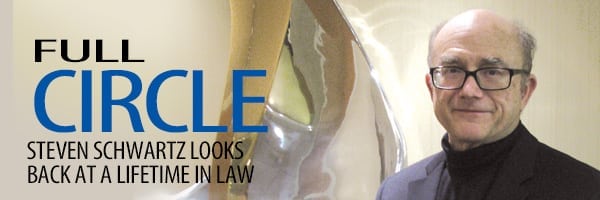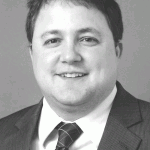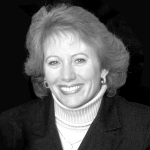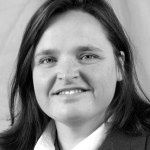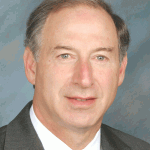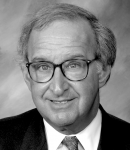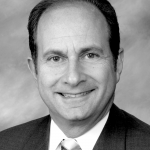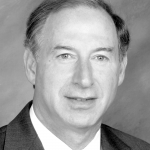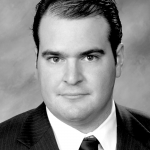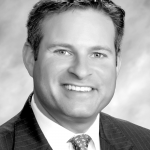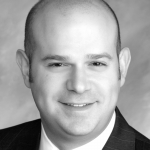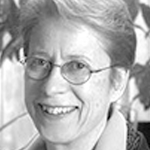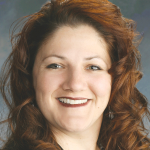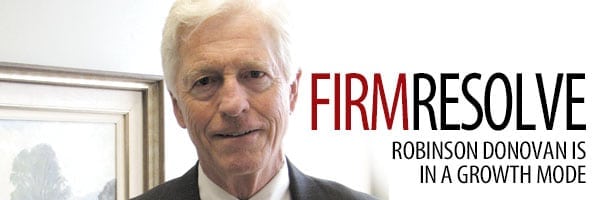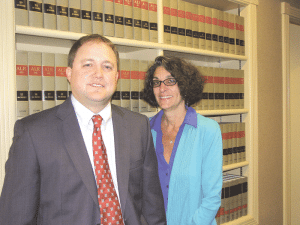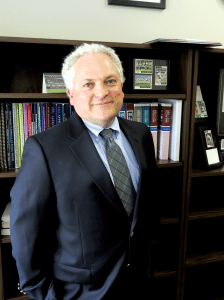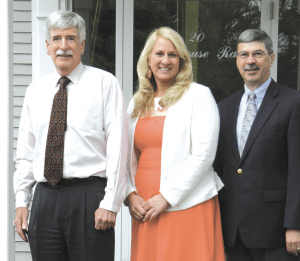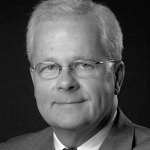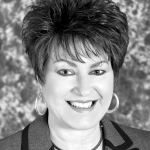Now Is the Time to Review Documents and Create an Action Plan
By LISA L. HALBERT, Esq.
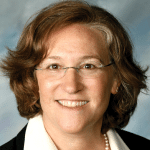
Lisa L. Halbert
As the end of 2014 approaches, articles are published that recap the year’s events (“the best of…,” “the worst of…”), or that encourage changes in behavior (how-tos) for 2015. Among that genre are the top 100 videos, 10 most influential people, and my perennial favorite, “how to lose that first 10 (or 50) pounds this year.”
In this respect, the field of elder law and estate planning is not terribly different. The new-year celebration is an opportunity to review legal documents and consider an action plan for estate-planning needs during the coming year.
Estate-planning documents need to be reviewed at least every five years and also upon major life events, to make sure they continue to be relevant. Even attorneys can neglect this periodic review, and as this article is written, I am reminded to pull out my own documents and confirm that my wishes are properly reflected. As for those who do not yet have documents, read below for the potentially serious consequences of not having documents in place.
What follows is a list of estate-planning documents, action steps, and paperwork to consider, and advice for the coming year.
Prepare a Comprehensive List of Assets
Make this less daunting by doing it in stages. When next balancing your checking account, before you get up from your desk, start an asset list and add all bank accounts and possibly real estate. Then set a time to consider what you hold in securities, retirement funds, insurances (life or disability), annuities, business valuations, and tangible personal property, such as art, furniture, and jewelry. Make a column and indicate who owns the asset, whether it is held in your name alone or jointly with another. See the section about beneficiary designations for further information.
This list should also include any assets held in a trust. Sharing this list with your estate-planning attorney is a good beginning point. Understand that, after your estate plan is fully developed, the titling of your assets may change to accommodate the plan.
Durable Power of Attorney
The DPA allows you to appoint people to assist with financial management of assets in your name while you are alive. The person who creates or grants the power is referred to as the ‘principal,’ while the person who is appointed to act on behalf of another is sometimes referred to as the ‘attorney-in-fact’ (AIF). The principal gets to determine the amount of authority to grant the AIF, with the exact terms set forth in the DPA. The benefit to a DPA is that you, not a court, choose who can have access to your financial information. A DPA can allow the AIF to access your assets even though you are fully capable of thinking and acting for yourself (for example, as a convenience for you while away on vacation), or it can be written to allow access only if and when you start to fail mentally.
A DPA does not change the ownership of any asset or account. It merely allows another to act as your fiduciary — to step into your shoes and make decisions as your agent. If an asset is owned by you alone, then at your death, the authority of the AIF terminates and the asset then goes through your will, unless there is a beneficiary designation attached to it.
Whether a copy of the DPA is immediately provided to your appointees or held to be distributed at a later time is a discussion to have with your attorney. Remember, if no one knows about it, or you fall ill and cannot communicate where the document is located, court action might still result.
The issue always comes up about whom to appoint and how many to serve at any one time. Should it be one person, or two people serving together? And if two serve, do they need to act together, or may they act unilaterally? From a purely administrative perspective, it is easiest to identify one person to act alone. But in families where there may be friction, or differing skills in terms of money management, then appointing two people to act may be the best choice for that particular family.
Decisions about whether to require two signatures or one are made by the principal after considering the benefits and burdens of both choices.
If a DPA does not exist or cannot be located, and you are unable to manage your financial affairs, then without a DPA in place the family may find itself needing to go to court to obtain a conservatorship over the accounts. In the alternative, the matter might linger and not be addressed in a timely manner. For example, through oversight, a deadline may be missed to pay a premium for life or disability insurance, causing the policy to lapse. Either way, the financial consequence could be much greater than the cost associated with having the document prepared and gaining control of who has access to the accounts.
Healthcare Proxy
Review your HCP to confirm that it identifies those you would want making healthcare decisions for you if and when you can no longer make or communicate them on your own. List appointees to serve in consecutive order, and make it long enough so that it stands the test of time. Discuss the prudence of additional provisions. For example, do certain religious beliefs impact healthcare decisions, and how should they be articulated? Would you allow certain drugs to be administered that might otherwise require court approval? Do you want your healthcare agent to choose a nursing home for you if it becomes necessary?
Once signed, provide your HCP to your healthcare providers and other physicians and hospitals. Some people keep a copy on the refrigerator, in the car, in their luggage, or with other important papers. And, of course, provide a copy of your HCP to those you have appointed as decision makers.
Remember, an HCP is not a medical release that allows an appointee to look into your private medical records or make changes to current treatments. Rather, a physician or certain nurses must invoke the HCP when you are no longer able to make informed decisions about your healthcare, or cannot communicate them. And just because the HCP is invoked does not necessarily mean that you do not have capacity to handle your own finances or manage other contracts.
If you have a surgical procedure, remember to bring a copy of your HCP with you, or ask the facility if you can e-mail a copy for their records. Many medical facilities provide a boilerplate form for completion prior to a procedure. Patients then dutifully fill it in, not necessarily realizing that this new form will revoke a previously signed HCP. It is always better to supply a doctor or hospital with your own HCP document, which will likely be a more considered and thorough document than the hospital’s standard form.
Without an HCP, if healthcare decisions need to be made for you, a court will appoint a guardian. This process takes time and costs money, and you may no longer get to control who is appointed to serve. The benefit of an HCP is that you get to choose those individuals you trust to make decisions for you as you would want for yourself, as opposed to having a court choose.
Massachusetts Medical Orders for Life-sustaining Treatment
The MOLST is a relatively new medical form and not a legal form. It is intended to be used by patients of any age who suffer from an advanced illness. It addresses current medical orders about life-sustaining treatment(s). It involves the medical provider/clinician and the patient, and it is effective as of the time of signing. It serves a different purpose than a HCP. Those with advanced illness or the loved ones of those same people are encouraged to discuss a MOLST with their clinician, or visit molst-ma.org.
Nursing Homes and Long-term-care Facilities
This is one of those cautionary tales that cannot be ignored. Too many times in 2014, clients have come in to ask for assistance in dealing with a collection issue concerning a loved one in an assisted-living residence, nursing home, or similar facility. For example, Barney Rubble arrives in the office stating that an assisted-living facility is looking to collect against his own assets to pay for his friend Fred Flintstone’s stay. It seems that the insurance that might have covered the experience had a glitch and is not paying.
Barney is Fred’s trusted friend and is appointed as Fred’s healthcare agent and AIF. On Fred’s application for admission to the facility, Barney signed as the ‘responsible party,’ because he felt that, since he was helping his friend Fred, he was therefore responsible to make sure Fred’s bills were paid. Although Barney was well-intentioned, in most cases, he missed the mark. While he is the AIF, it is only with respect to using Fred’s funds. Barney never intended to promise to use his own funds.
Before signing any paperwork, slow down and carefully read the application. ‘Responsible party’ frequently means that the person signing is actually financially responsible for the person who is going into the facility. Therefore, the proper way to have completed this area of the form so as to insulate Barney’s assets was: ‘Fred Flintstone by Barney Rubble, his AIF.’ Otherwise, Barney may be setting himself up for the facility to come after his own assets, in addition to Fred’s.
Last Will and Testament
A last will and testament controls assets that are held in your name alone without a designated beneficiary, at your time of death. These are the only assets that go through the probate process. Your will is a road map as to whom you would like to receive your probate assets, so long as it is not illegal.
It can also provide for forgiveness of debt or allow someone temporary use of an asset (such as living in a home until X age, or Y event occurs). Generally, a will allows you to control and determine who inherits your estate at your death. (A surviving spouse and minor children, however, do have certain statutory rights that take priority over the terms of the will, even if you intended to try to disinherit the spouse and/or child.)
When you die, the Mass. Uniform Probate Code (MUPC) controls the probate process. The MUPC is intended to expedite the process and no longer requires as much court intervention or oversight, although court supervision is available where appropriate. For those with new probate matters, be aware that, as of the end of October, a new rule was issued that requires seven days’ notice must be given to the Division of MassHealth before a petition for probate is filed with the court.
While this usually will not pose a problem, compliance is required. Because the MUPC is still relatively new, attorneys continue to identify nuanced changes relative to how the rules are to be implemented. And while the law was intended to be user-friendly and more streamlined, another caution is to seek legal counsel, especially where a decedent dies owning real estate.
If you pass away without a will (referred to as dying ‘intestate’), state law dictates how your assets get distributed. Under the MUPC, if you die intestate and are survived by your spouse and children of both you and your spouse (whether biological or adopted), then your spouse will receive your entire estate, without any portion specifically allocated to the children of the relationship. If there are stepchildren (on the side of the decedent or the spouse), then a different distribution is dictated.
Under the MUPC, your spouse has priority to serve as the personal representative (formerly executor) for your intestate estate. The statute, however, provides that, if your spouse does not want to accept the position, he or she may designate someone else to act, effectively skipping over an adult child who might have anticipated taking on that role. So, while you might not think you have enough assets to have a will prepared, having control and choosing the beneficiaries is likely the best route to go in case that late-bought lottery ticket is found, or a family member inadvertently left you as a beneficiary.
A will can also have some significance prior to your death. During your lifetime, if you become incapacitated and another is put in charge of your assets and financial management, there may be occasions where gifts are appropriate. The AIF or conservator can look to your will in order to figure out who or what entities are most dear to you and help implement some of those dispositions even before you pass away. The will, therefore, may offer some guidance even during your lifetime.
Trust-based Planning
Depending upon your assets, intended beneficiaries, and other information, a trust might be a better option to accomplish your preferred distributions than a will. A trust is a document with three major players — the person who creates it (you, also known as the grantor), the trustee (who could be you and/or others and is the one who actually administers or managers the assets), and the beneficiaries (who could be you and/or others who receive a benefit under the trust). The trust document provides direction as to how you want your assets (and debt) managed, invested, and distributed. It is especially useful if there are minor beneficiaries and you want to know that instructions are followed long-term, or where another needs some long-term financial assistance or management (such as a special or supplementary needs trust.)
This year, irrevocable trusts have become a topic of much discussion among elder-planning attorneys. Irrevocable trusts have been used by elder-planning attorneys as one way to provide the elder ‘income only,’ but save the principal for others. When created, counsel and clients knew that income-only trusts would leave the income exposed and in the sights of MassHealth, and available to pay for care.
This past year, however, MassHealth more frequently required that the principal also be made available to pay for the elder’s care. MassHealth’s position seems based on an interpretation of text that might allow for the trustee to alter or exchange assets within the trust. While there is some myopic interpretation which, when taken out of context, might allow for an elder to receive what was formerly characterized as principal, when considered in total, most of these irrevocable trusts do not allow for such dispositions.
The legal battle continues to heat up, and for the immediate future, an irrevocable income-only trust, where a MassHealth application might someday be required, should be approached with extreme caution.
Beneficiary Designations
Review beneficiary designations on your various accounts to confirm that they remain current and in line with your overall estate plan. Types of assets that frequently carry opportunities for beneficiary designations include insurance, annuity, retirement accounts, and some brokerage accounts (accounts that hold securities and other investments).
Designating a beneficiary completely avoids the asset going through probate, and there may be some income-tax advantages to naming a direct beneficiary. Most people, however, forget that the first-named beneficiary might not outlive them, and do not properly name a contingent beneficiary. Also, if your estate plan is premised on having assets go through your probate estate, but the designations are not changed, then your plan may be defeated.
An estate plan, once completed, may use a blend of assets that are directed to specific beneficiaries via designation, as well as assets that go through probate or a trust. Retirement assets may have a better income-tax benefit if directed to specific individuals or charities (especially if you are looking to save an income-tax bite to the estate), while life insurances might be more appropriate to go through probate. Each client situation is different.
The MUPC effectively revokes certain beneficiary designations to a prior spouse. Therefore, if you are divorced and yet still intend for your ex-spouse to receive assets via a beneficiary designation that has not been changed since the divorce, revisit the designation.
Further, there are many insurance companies that do not yet respect the MUPC and stand by their own rules stating that, where a spouse is named as a beneficiary, even after a divorce the prior designation stands. So, even if your separation agreement holds that the ex-spouse is not a beneficiary, some companies ignore that text. Rather than cause your family unnecessary angst, it is best to affirmatively confirm or change beneficiary designations after a divorce is finalized.
Same-sex Spouses
A year ago, significant ink was used getting the word out that same-sex spouses could qualify for spousal benefits in Massachusetts and under the federal law. While not exactly breaking news, spouses (including same-sex) are once again encouraged to review all financial aspects that might impact their married life. For planning purposes, this impacts your federal income taxes, Social Security benefits, FMLA, and health-insurance coverage.
Retirement benefits from a qualified retirement plan will be required to allow the surviving spouse of a married couple, whether same-sex or not, to withdraw the funds over the surviving spouse’s lifetime. IRAs that allow a spouse to roll over inherited assets into his or her own IRA are now allowed. There are more than 1,000 federal benefits that may be impacted by this ruling. Check beneficiary designations as well as federal tax withholding. By now it should be old news, but I will remind you that same-sex spouses may file joint income-tax returns.
From an estate-planning perspective, we are in the second year that same-sex couples can take advantage of the unlimited marital exemption to transfer assets between spouses during life, as well as at death. For high-wealth couples, ‘portability’ of the estate-tax exemption at the death of the first spouse to a surviving spouse is now allowed. With an estate-tax exemption currently at $5.34 million per spouse (and $5.43 million for 2015), this allows a same-sex married couple to have a combined $10.68 million ($10.86 million for 2015) estate-tax exemption.
While this may not currently impact you, if the surviving spouse wins a large lottery ticket, or comes into money for any other reason even after the first spouse’s death, having elected portability may result in a significant estate-tax savings.
Do-not-resuscitate Order
A DNR is not prepared by your attorney. It is available to be signed in your physician’s office, and it states that, if your heart stops, you do not want extraordinary measures taken to restart it. A DNR is not interpreted to mean that you want to be taken off of medical machinery (and be allowed to die) if you are being kept alive only by such mechanical devices.
Passwords
Regrettably, I am electronically challenged. So, the best advice I can offer is that you need to figure out an appropriate way to track all of your passwords and user ID information, and consider how to leave this information so that your attorney-in-fact or personal representative can access it in the future. There is an old-school view, which is to write it all down and keep it in one place, and there are those who use the cloud or other programs.
Either way, while you still have capacity, think about and organize the information. From experience, the list should include bank accounts, ATM cards, brokerage access, credit and other loans, and even health-related information. Document the answers to applicable security questions.
From a practical perspective, it is frequently very hard for your AIF to establish online access; it is much easier to continue access which you have established. Yet, where many AIFs do not live proximate to the principal, online access is the best solution. So before your memory fades, or an unexpected accident arises, consider whether you want to figure out a solution that makes it much easier for those who might have to assist you.
Important Papers
Organize a filing system for important papers. Whether alphabetical or by category (bank papers, insurance, etc.), consider putting all important papers in one place. Documents to be retained include Social Security cards, copies of birth certificates, and legal documents (will, trust, HCP, DPA, marriage license or divorce decree, and funeral-related paperwork). Include on this list your children or next of kin and their addresses. If you should die, and a non-family member is involved, it makes locating family much easier.
This checklist provides a starting point. For more information, contact an estate-planning professional for a comprehensive review of your plans.
Lisa L. Halbert is an estate-planning, elder-law, and real-estate attorney with the regional law firm Bacon Wilson, P.C. She is especially focused on legal matters relating to elder care, estate planning, and asset protection; (413) 584-1287; baconwilson.com



